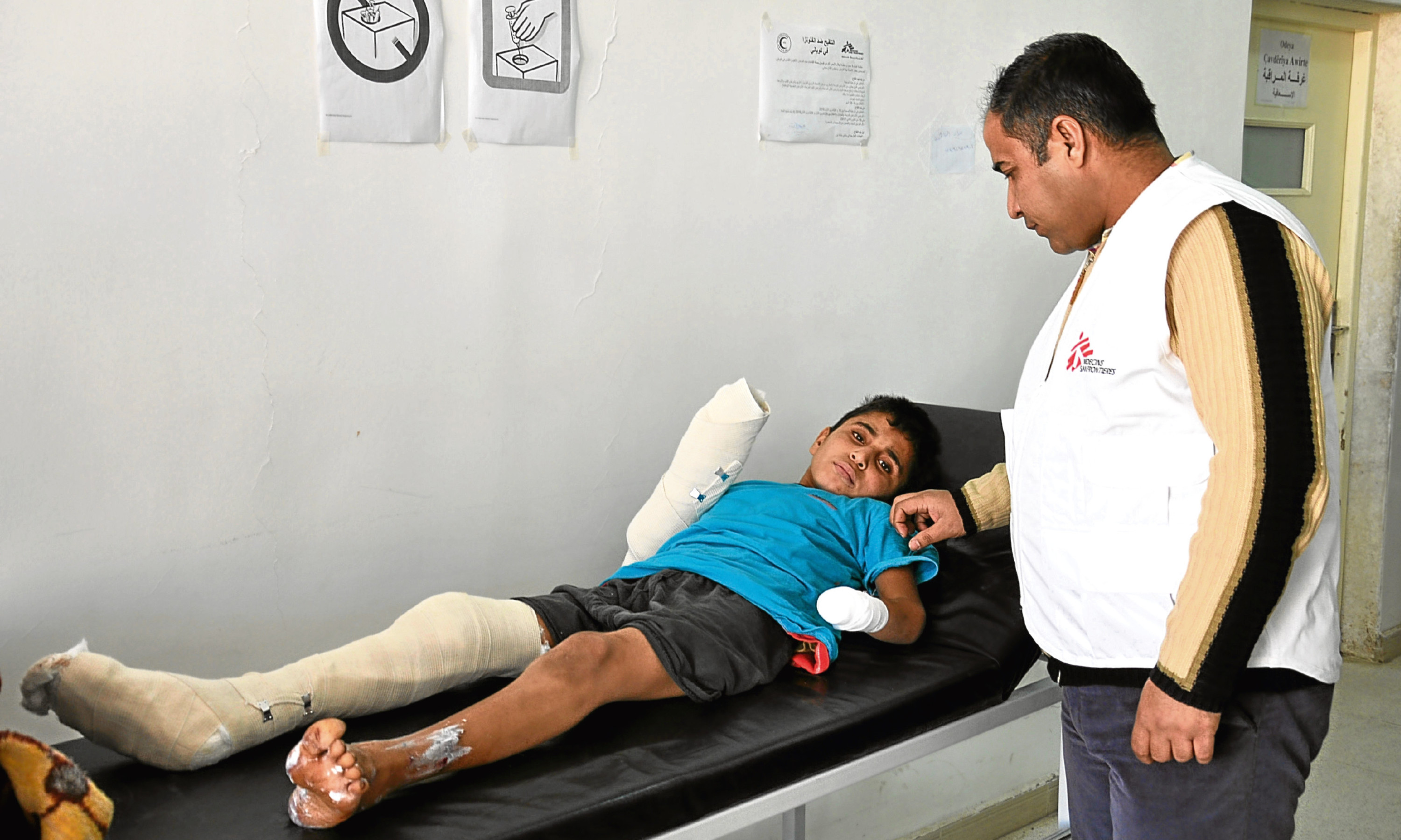The world faces a crisis of leadership highlighted by the Syrian gas attacks.
A total of 72 people are believed killed, including 20 children, from the release of poisonous gas in the Idib province on Tuesday.
Footage shows victims choking and foaming at the mouth.
This is one more atrocity in a war which has been marked by its brutality.
The notion that there are rules or that the Geneva Convention holds has been torn to shreds by the horrors of Syria.
For more than six years, the world has tolerated a conflict which has seen civilian communities targeted, aid hospitals bombed and chemical weapons used. Five million people have fled the country, where 250,000 are believed dead.
The fight for Damascus is chilling – a symbol of a world without moral checks or international leadership.
Within the Syrian conflict are those fighting for an alternative to President Assad’s rule, a government fighting back and some for Islamic fanaticism.
It is a catastrophe about which nobody cares enough.
President Obama is accused of not engaging fully with the conflict when he was in office.
The charge against his presidency is that he allowed the world to think the USA was not its policeman, or even that motivated to engage.
It is too soon to judge whether Obama began the American retreat but it is clear Trump is in no mind to revive America’s role as the global conscience.
In a strange inversion of Truman’s doctrine to speak softly and carry a big stick, the current president plans to tweet erratically, get a bigger stick and quite possibly do very little.
Trump has said that Obama is to take the blame for “doing nothing” in Syria but has yet to state what he would do.
If not America, then who can help?
One of the enduring criticisms of the European Union is that it has never adequately developed a global peace-keeping or interventionist role. Perhaps an EU without Britain will change this but it will come too late for the people of Syria.
As for London’s claim to having a global role, the evidence is not there.
Much of British politics works on the presumption that when its government or parliament adopts a position on a foreign issue, this matters.
Westminster debated intervention in Libya in 2011 and acted on the resolve.
When the Commons came to vote on intervention in Syria, the majority were against getting involved militarily and so we sat back to let the Syrians murder one another.
Given that there was little in the way of a coherent plan as to what British soldiers or aircraft would do in Syria, it was probably the right call.
History may come to show it was also the last time Britain had the illusion it mattered.
Post-Brexit and mid-austerity, we neither have the status, leverage or capacity to intervene anywhere. Our global role is reduced to flogging arms to anyone with the cash and denying responsibility for the harm they cause.
Which leaves Russia and China as the candidates for imposing some kind of global order.
Moscow says the gas attack in Syria was the result of rebel forces hitting a chemical weapons store, a claim denied by other sources, including the British Government. In any case, Assad is meant to have given up his chemical weapons to peace keepers.
Russia clearly has no appetite for becoming a leader, preferring the role of malcontent and saboteur.
Its action in Syria has been driven by self-interest, while its relationship with other powerful nations has been malicious (bugging, hacking and spying).
Of course, neither Russia or America are doing nothing. Moscow backs Assad, Washington the rebels – the support of both powers fuels the war to a length and intensity that would not have been possible otherwise.
Which leaves Beijing. The Chinese seem to take the view that the Syrian conflict is far from its sphere of influence.
It is very hard to see this changing as the history of intervention is a tale of disasters – why go where others fear to tread?
This means that for the first time since industrial war was possible, there hasn’t been a clear global leader who can mediate for peace.
For the people of the world, the dread is what happens next? This crisis of leadership is profound.
It is to be felt in the emerging economies of Africa, where hope is often extinguished by corrupt bureaucracies, as it is in western economies which seem to have run out of ideas on social change and are reverting to populism.
It is apparent in an America that seems keen to undo itself and in a China with its dogged resistance to human rights.
And it results in children dying from their throats burning with chemicals, spit foaming in their mouths, eyes burning.
And in us looking on, witnesses to a world that is losing its direction.
